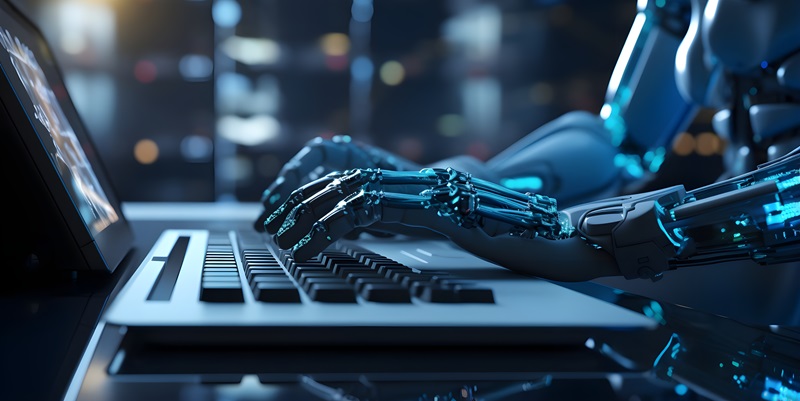Artificial intelligence (AI) is revolutionizing IT automation by introducing intelligent automation. This leap from simple scripting to AI-driven operations is reshaping how IT tasks are performed, offering unprecedented precision and learning capabilities. AI-driven IT automation enhances efficiencies across network management, security, cloud services, and software development.
These advancements mean businesses experience fewer errors, less trivial work, and a nimbler IT infrastructure adept at anticipating and adjusting to future challenges. However, merging AI with IT systems is complex, requiring the harmonization of intricate AI models with diverse IT operations. Despite these challenges, the integration of AI is forging an advanced automation landscape that extends well beyond traditional automation capabilities, illustrating the transformative power of AI within the enterprise tech sector.
Bridging AI and Automation
AI is tailoring IT automation to be increasingly predictive rather than reactive. Through machine learning and advanced data analytics, AI can anticipate system failures, security breaches, and efficiency bottlenecks before they occur. This predictive capability is revolutionary, enabling IT systems to initiate corrective measures proactively. In the software development life cycle, AI-driven automation tools are refining code quality and accelerating deployment, leading to a surge in productivity and innovation. Continuous integration and deployment (CI/CD) pipelines, buttressed by AI, automate routine tests and updates, thus speeding up the release process and enhancing software reliability.
The leverage of AI is not limited to anticipatory actions; it also extends to self-optimizing systems. These are IT infrastructures that continuously learn from their operations, adapting to optimize performance over time. Here, AI’s role is transformative, implementing tweaks and adjustments autonomously to maintain efficiency. Cloud computing, with its elastic resources, benefits greatly from such self-optimizing automation. AI algorithms dynamically allocate resources based on real-time usage data, ensuring not only cost-effectiveness but also peak performance. This synergy between AI and cloud automation stands at the forefront, epitomizing the symbiotic relationship that AI fosters within IT automation structures.
Navigating Challenges and Embracing AI Complexity
The merger of AI and IT automation holds promise for business efficiency but is not without its difficulties. As AI advances rapidly, there’s a shortage of skilled professionals to manage this tech evolution, leading firms to upskill employees and work with academia to bridge the talent gap. Ethical concerns, especially around privacy and accountability, are also pivotal, prompting companies to carefully apply AI in an ethical and controlled manner. Additionally, cutting-edge generative AI necessitates continuous rethinking of IT infrastructures, where questions about human oversight remain critical. To ensure ethical and effective application of AI automation, organizations are developing governance frameworks. This AI-driven transformation in IT automation is significant, offering innovative solutions like predictive maintenance and intelligent self-regulating systems. Despite these hurdles, with mindful management, AI’s integration into IT automation is poised to revolutionize enterprise operations, driving innovation well into the future.

